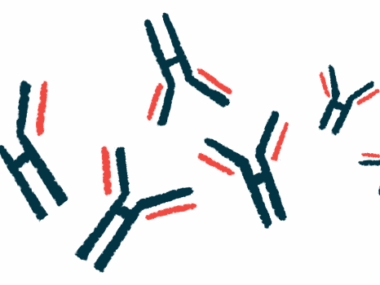Corbus Changes Goal of Phase 3 Lenabasum Trial in Diffuse Cutaneous SSc, Sees as Step to Possible ‘Success’
Written by |

Corbus Pharmaceuticals is adjusting the primary efficacy outcome of the ongoing and global RESOLVE-1 Phase 3 trial of lenabasum as a possible treatment for diffuse cutaneous systemic sclerosis (SSc). The change affects only U.S. sites involved in the study and was recommended by regulatory officials.
The adjustment, a change in the measure judging the trial’s main goal, or primary endpoint, may mean a more successful study, a company official said.
The trial (NCT03398837) was initially design to assess the efficacy of the experimental treatment according to changes in modified Rodnan Skin score (mRSS) after one year of treatment. Now, the trial’s primary efficacy goal will be changes in the American College of Rheumatology Combined Response Index in diffuse cutaneous SSc (ACR CRISS) score upon 1 year (52 weeks) of treatment at each of its 27 U.S. sites.
Changes in mRSS will still be determined, but they will now be considered a secondary show of treatment effectiveness.
This change was based on recommendations by the U.S. Food and Drug Administration (FDA) in a meeting regarding the study, and aligns the design of RESOLVE-1 with a previous Phase 2 study of lenabasum (NCT02465437), in which the primary endpoint was also the ACR CRISS score.
“In that meeting, the FDA recognized the unmet medical needs of SSc patients, challenges in developing drugs to treat SSc, and limitations of current endpoints for trials in SSc,” Barbara White, MD, chief medical officer of Corbus, said in a press release, adding the agency “deferred selection” of the trial’s primary goal to Corbus.
Still, “the FDA stated that the components of ACR CRISS reflect relevant aspects of SSc, and they will consider the totality of the data during review of any marketing application in SSc,” White added. “We will pursue discussions with other regulatory authorities to consider changing primary efficacy outcome to ACR CRISS outside of the U.S.”
These changes do not alter the expected timeline of the trial, due to end in early 2020, or its 354-patient size.
The ACR CRISS score is a composite measure that takes into consideration different aspects of response to treatment in SSc. It is calculated according to weighted changes from baseline (the study’s start) in mRSS, Health Assessment Questionnaire – Disability Index (HAQ-DI), forced vital capacity (FVC) percent predicted (a measure of lung function), and patient and physician global assessments of health related to SSc.
The American College of Rheumatology has provisionally endorsed use of ACR CRISS score as an outcome measure in clinical trials testing new therapies for diffuse cutaneous SSc.
“We believe that using the ACR CRISS score as the primary efficacy endpoint increases our probability of success in the RESOLVE-1 study in the U.S. The ACR CRISS score has proven more sensitive to treatment effect than mRSS in recent trials, and we saw an encouraging treatment effect with lenabasum compared to placebo in our Phase 2 study using this endpoint,” White said.
“We believe the study is well powered for this primary endpoint and subject numbers, visits, and assessments of the core items needed to calculate the ACR CRISS scores will continue unchanged from what is currently in the Phase 3 protocol,” she added.
RESOLVE-1 trial is still recruiting eligible adults at many of its 74 across North America, Europe, Australia, Israel, and Asia. Contact and location information is available here, and additional information can be found on Corbus’ website.





